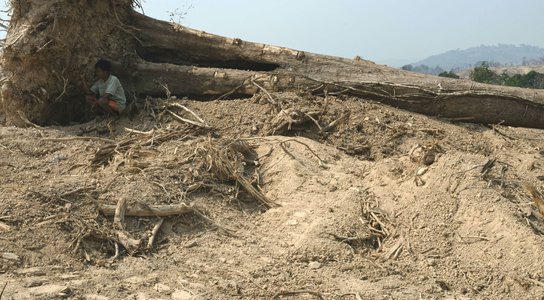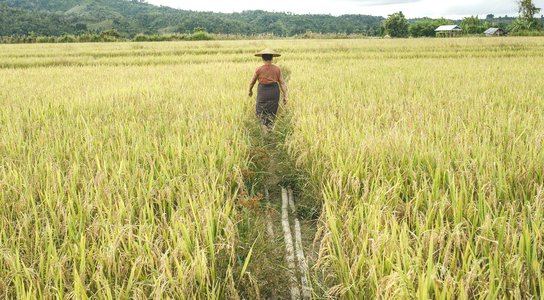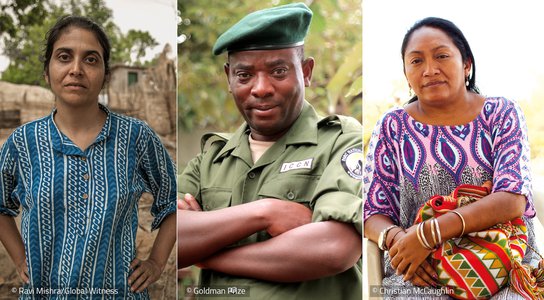I'm currently in Colombo, Sri Lanka, sitting down with some of the world’s biggest tyre brands at the World Rubber Summit, and discuss the urgent question of how they can best tackle the issue that is unsustainable natural rubber.
The major tyre companies are also here. These include industry leaders Michelin, Goodyear and Bridgestone, who have been making moves to tackle some of the issues around unsustainably sourced rubber, by proposing a sustainable rubber platform.
These companies are driving this initiative through the Tire Industry Project (TIP), which sits under the auspices of the World Business Council on Sustainable Development. The aim of the platform is to identify best practices for the responsible sourcing of natural rubber and to maximise company efforts around this common goal.
Why is it so important to put this platform in place? Despite industrial rubber expansion’s recent devastating impacts on indigenous communities and forests, natural rubber is one of the few commodities without any regulation or globally binding standards.
When I first started working at Global Witness six years ago, nobody was talking about sustainable rubber.
We were the first organisation to expose the significant harm across the Mekong region in the wake of rapid rubber expansion. Our reports documented human rights abuses carried out by state forces as part of land seizures, and rampant illegal logging and destruction of intact forests at a time when Cambodia suffered one of the highest rates of deforestation in the world.
The slump in global rubber prices has seen a slow-down in expansion but the threats still continue: only recently it was reported that industrial rubber plantations are encroaching on biologically-diverse ecosystems and a UNESCO World Heritage Site in Cameroon.
The last few years has seen some progress: following long discussions with Global Witness and other NGOs, several of the major tyre companies now have policies related to sourcing sustainable natural rubber, which address protecting indigenous land rights and protecting forests and biodiversity. They have also discussed how to best work with smallholders to improve yields to prevent the damaging expansion of industrial scale plantations.
Global Witness has also worked with the Chinese government to help develop guidelines for rubber companies operating overseas – although voluntary, they remain the strongest standard for rubber yet. Of course, the proof will be in the implementation of these policies and guidelines. Some may be strong on paper, but without proper oversight and accountability they risk amounting to nothing.
This is where TIP comes in: TIP represents around two-thirds of tyres produced globally and the sustainable rubber platform it is proposing could be a real force for good. But it needs to be done right.
Many commodity initiatives rightly focus on how best to protect land and forests – but companies are still failing to acknowledge that these are ecosystems which have been traditionally owned and managed by indigenous peoples for generations.
It’s therefore crucial that these communities are at the heart of any sustainable rubber platform as they look to create real action that benefits all, and importantly exploits no one. And that means that the six million smallholder rubber farmers, in natural rubber-producing countries, must be fairly represented.
Along with a previous disregard for communities, another major weakness of other commodity platforms has been the failure to adequately audit and penalise companies when they break the rules.
TIP mustn’t go down the same route, if it wishes to avoid becoming a body that rubber-stamps and greenwashes harm perpetrated by its own members. The platform needs to adopt clear standards for natural rubber, which all members commit to before joining.
Civil society and other supply chain actors must also be given a transparent and comprehensive way to report policy violations. And any companies that don’t comply to the rules of the platform should have their membership revoked.
This robust approach to upholding standards and penalising companies which fail to comply will help ensure a more dedicated membership base, and will help create coherent discussions around policy implementation. At the very least it will ensure that companies are committed to zero-deforestation and zero-land-grabbing.
Ultimately, the kinds of abuses we have already seen caused by industrial rubber expansion need national legal reforms which vitally uphold indigenous peoples’ rights and protect ecosystems - often countries with weak rule of law and high levels of corruption do not provide this protection.
As such, the companies that source from these countries need to do more to ensure that the rubber in their tyres doesn’t cause harm.
An inclusive sustainable rubber platform could help raise standards across the whole of the sector and we hope the discussions in Sri Lanka will be just the beginning of positive change for the rubber industry.


